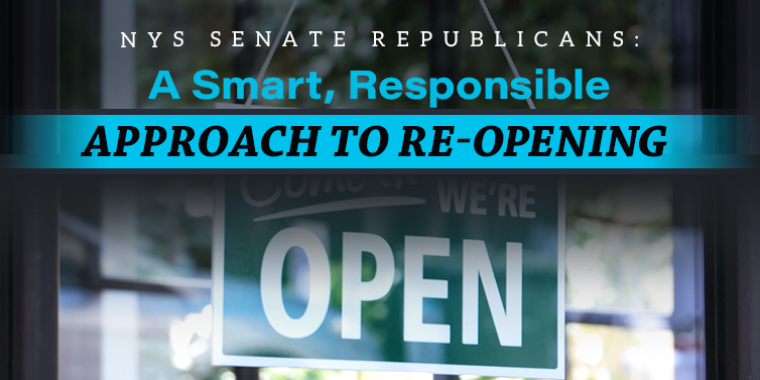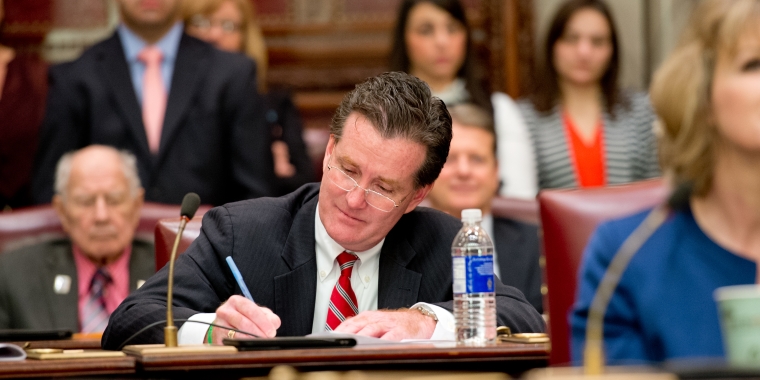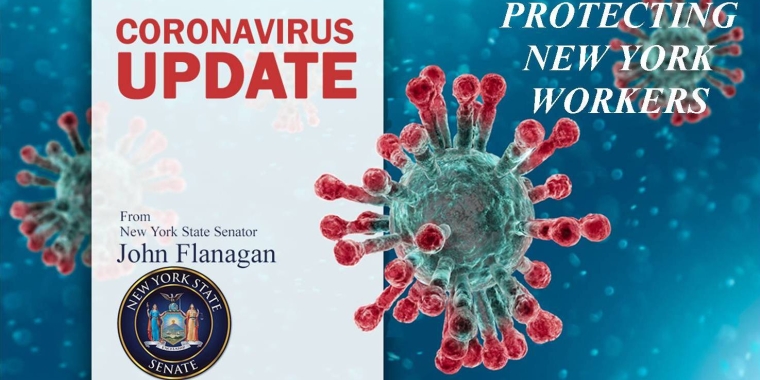
Long Island Senators Urge Assembly To Pass Property Tax Cap
John J. Flanagan
May 23, 2011
-
ISSUE:
- Property Tax
Long Island’s nine Republican State Senators joined a local family at their home to again urge the New York Assembly’s Democratic leaders to finally pass a school and local government tax cap. This legislation, which passed the Senate in January at the request of Governor Andrew Cuomo, would provide taxpayers of Long Island with the property tax relief they need by limiting the growth of school and local taxes to two percent or the Consumer Price Index (CPI), whichever is less.
The Long Island Senators made the call at the Bayport home of Richard and Joanne Curley who have seen a 16.2% increase in their property taxes over the past three years for a total of $1,591. If the property tax cap that Senator Flanagan sponsored and voted for in the Senate had been in place, the increase would have been limited to $343.
“The increases we’ve seen in property taxes are out of control. My family is wondering when it will stop,” Joanne Curley said.
“Families like this are unfortunately the norm on Long Island and the Assembly leadership needs to act quickly to help make sure that young families like the Curley’s can live and raise a family here. The simple truth is that our state is losing residents and businesses because they cannot reach any further in their pockets to pay skyrocketing property and job-killing business taxes and something needs to be done now. The tax cap is a sensible way to manage costs at the local level and our residents clearly need it,” stated Senator Flanagan.
The tax cap, which is supported by business organizations across the state, includes the following provisions:
> A school district's tax levy limit, excluding the taxes necessary to support the local share of capital expenditures, could increase by either two percent or the annual increase in the consumer price index ("CPI") whichever is lower;
> A school district would be allowed to carry over unused tax levy capacity from the prior year but could use this carryover levy capacity to increase its tax levy only an additional 1.5% in any year; and
> In the event a district's actual tax levy exceeds its authorized levy due to clerical or technical errors, the mistaken excess levy must be placed in reserve to offset the levy for the next school year.
Every school district affected by the cap would be required to submit a tax levy proposition for approval by voters at the district's annual meeting on the 3rd Tuesday in May. If the proposed tax levy is within the district's tax levy limit, then a simple majority vote would be required for approval. If the school district’s proposed tax levy exceeds the district's tax levy limit, then the vote threshold required for approval would be 60 percent.
In the event the tax levy is defeated, then the district would be required to submit a second tax levy proposition for voter approval by voters at a district meeting held on the 3rd Tuesday in June. If the proposed tax levy is within the district's tax levy limit, then a majority vote would be required for approval but if the proposed tax increase exceeds the district's limit, then they would need the approval of 60 percent for passage.
If that second proposition is defeated, then the district would be required to adopt a tax levy that is no greater than the prior school year.
The tax cap legislation also provides for the same cap to apply to taxes levied by municipal governments. Under the legislation, local governments that implement a tax rate lower than the cap in one year will be allowed to rollover that amount up to 1.5 percent in the following year.
“Passing the Governor’s hard property tax cap bill was one of the first things the Senate did this year and, unfortunately, the bill has languished in the Assembly,” Senate Majority Leader Dean G. Skelos said. “The Speaker of the Assembly has made it clear that acting on the Governor’s property tax cap bill in not a priority in his house. Well it is the top priority for Senate Republicans and it’s a priority in thousands of homes on Long Island where taxpayers are desperate for relief.”
Any resident who would like to voice their support for the tax cap can do so by clicking here.
Share this Article or Press Release
Newsroom
Go to Newsroom
Special Statement From Senate Republican Leader Flanagan
March 25, 2020

Statement From Senate Republican Conference Leader Flanagan
March 23, 2020


